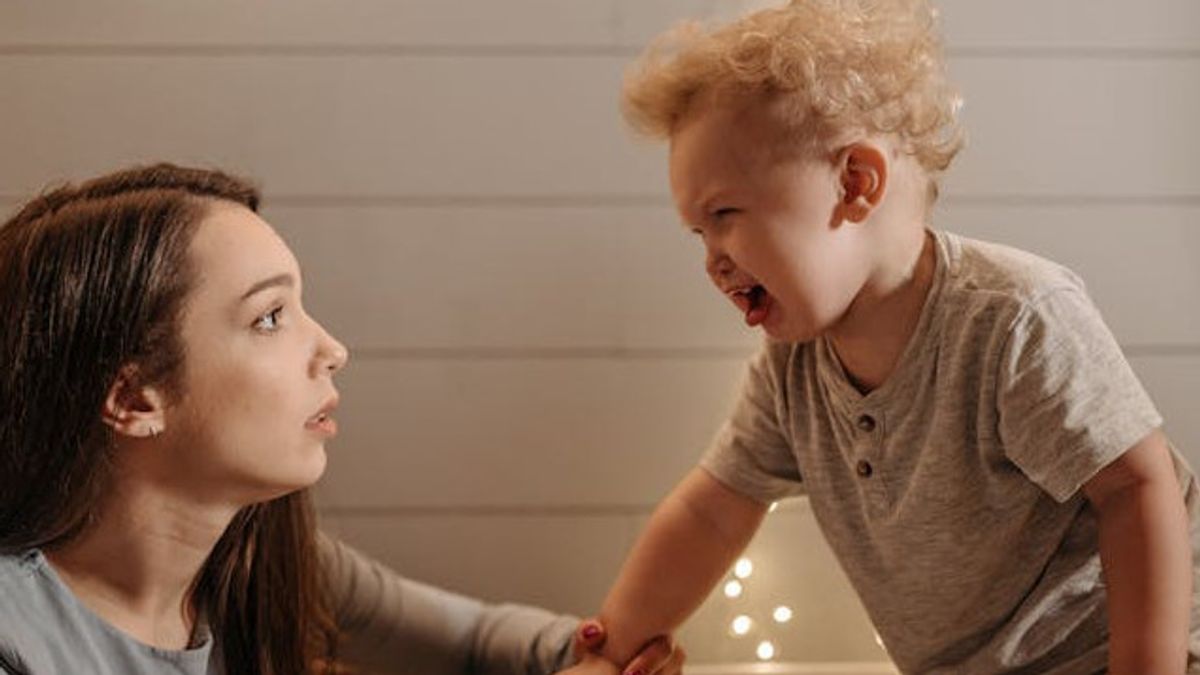JAKARTA - Children use their behavior to show how they feel and think. All behavior is a form of communication and often, they communicate things through behavior that cannot be expressed verbally, causing bad behavior.
When determining how to respond effectively at times like this, consider why your child behaves badly and try to find possible reasons that underlie this behavior.
Here VOI, launching Parents.com, Monday, December 9, will outline eight reasons why children behave poorly. And how you as a parent can overcome each of these reasons as well as possible.
Children learn how to behave by observing other people. Whether they see peers at school behaving poorly or imitating something they see on TV, children tend to repeat what they see.
Limit children's exposure to aggressive behavior both in the media and in real life. Being a role model for healthy behavior can teach children which behavior is the most appropriate in various situations.
Once you set the rules and tell your kids what shouldn't be done, they'll see if you're serious about it. Testing boundaries is a healthy part of children's social and emotional development. And it's a common thing for them to test boundaries as a way of knowing what will happen if they break the rules.
Set clear boundaries and offer consequences consistently. If children think there is a small chance they can escape something, they are often tempted to try it. If there are clear natural or logical consequences that are not desirable related to their choice of breaking the rules. They will tend to obey the limits and rules that you apply.
One of the behavioral problems can be caused by a lack of skills. A child who does not have social skills or communication skills according to his age will beat another child because he wants to play with toys. A child who does not have the skills to solve the problem will not clean his room because they are not sure what to do when toys don't fit in a toy box.
When children behave poorly, teach them what to do instead of just giving consequences. Show them the impact of bad behavior so they can learn from mistakes.
As children get older, they will be more independent and often want to show off their new skills. It's difficult to explain with words, sometimes children will show it with bad behavior.
Give children the opportunity to make the right choices. Ask the child what they want. Give children the responsibility to solve problems or do what they want. Providing age-appropriate freedom is one way to meet the child's needs to grow independently.
Sometimes, children don't know what to do with their feelings. They are easily overwhelmed when angry, and as a result become aggressive. They even act excessively when they feel happy, stressed, or bored.
Teaching children words that contain feelings can be the right tool to start and maintain conversations about big emotions. Words that contain feelings are words that are used to describe certain feelings such as "angry" or "lazy." By teaching children words that contain feelings, you can give them emotional vocabulary so they can communicate through strong feelings well.
Children will benefit from learning healthy ways to deal with feelings such as sadness, disappointment, frustration, and anxiety. It would be very helpful if parents taught their children about feelings and showed them healthy ways to deal with various emotions.
When children have more awareness of their emotions and ways of overcoming them, they will be better able to use healthy handling skills when experiencing great feelings.
Bad behavior often occurs when children feel hungry, tired, or sick. Most toddlers and preschoolers are not good at communicating what is needed, so they often use behavior to show that they have needs that have not been met.
Being proactive can be a support for children and parents to do so by paying attention to needs that have not been met. Listen to children's emotions, ask how they feel, and respond to the signal that those who communicate that their needs have not been met.
One of the simplest reasons why children behave poorly is because it is effective. If breaking the rules makes them get what they want, they will immediately learn that bad behavior works.
For example, a child who nags until his parents give in will learn thatars are a great way to get whatever they want. Or when a child goes berserk in a shop, and his parents buy toys for them to stop screaming, they learn that tantrums are effective.
Make sure that your child's bad behavior does not benefit them. Even if you give in, it makes your life easier at that time. In the end you will teach your child that there are benefits of behaving in ways that are not helpful or inappropriate.
SEE ALSO:
Sometimes, children have underlying mental health or neurodivergence problems, which contribute to behavioral problems. For example, children with ADHD or other forms of neurodivergence, can find it difficult to follow directions and tend to behave more impulsively than their neurotypical peers.
If you suspect that your child has mental health problems or underlying developmental disorders, talk to a pediatrician. Evaluation by licensed mental health professionals is needed to determine whether there are emotional problems or underlying developmental differences that contribute to the challenges of their behavior.
The English, Chinese, Japanese, Arabic, and French versions are automatically generated by the AI. So there may still be inaccuracies in translating, please always see Indonesian as our main language. (system supported by DigitalSiber.id)


















